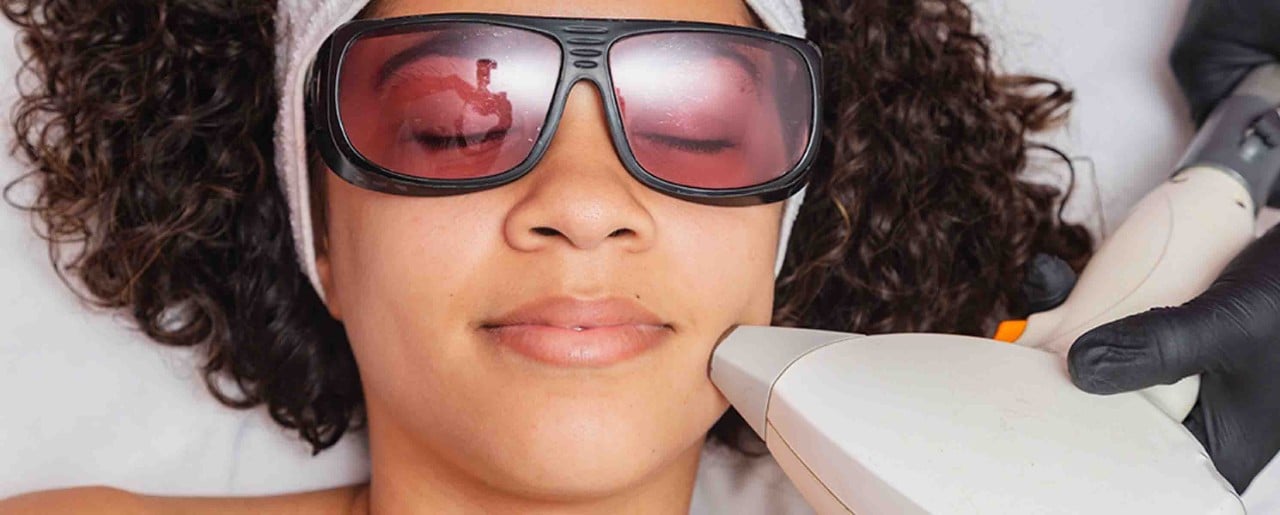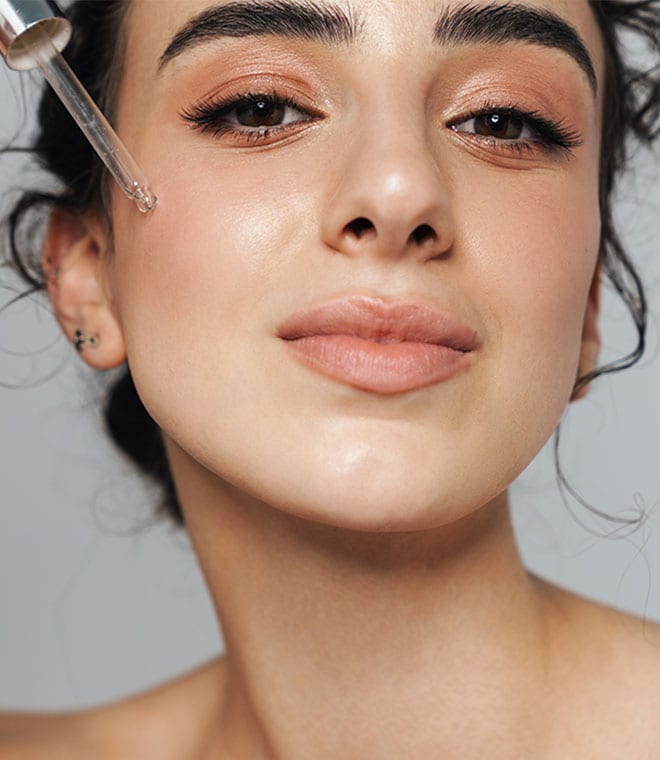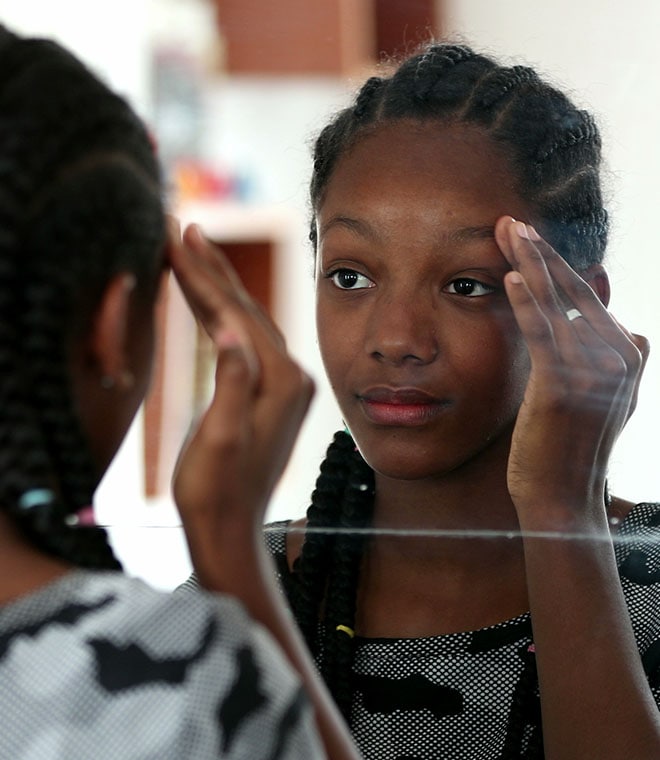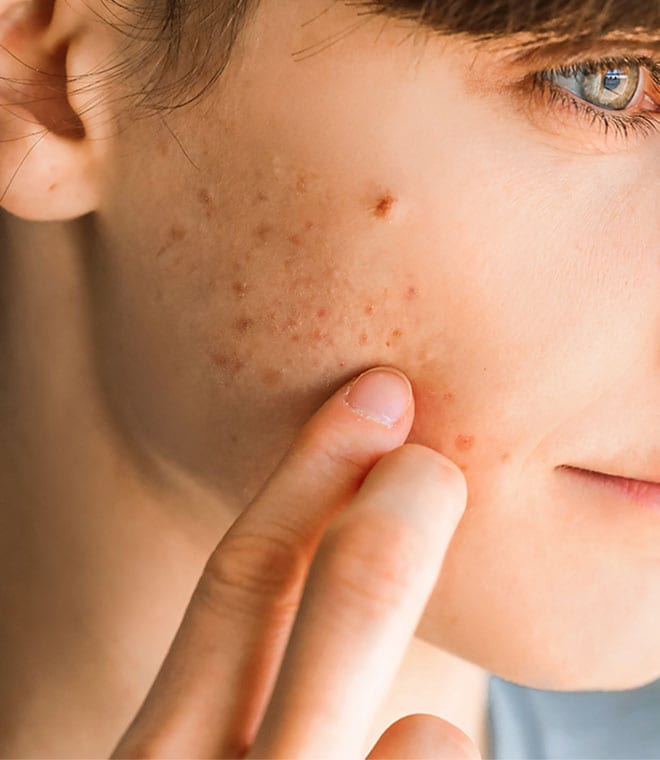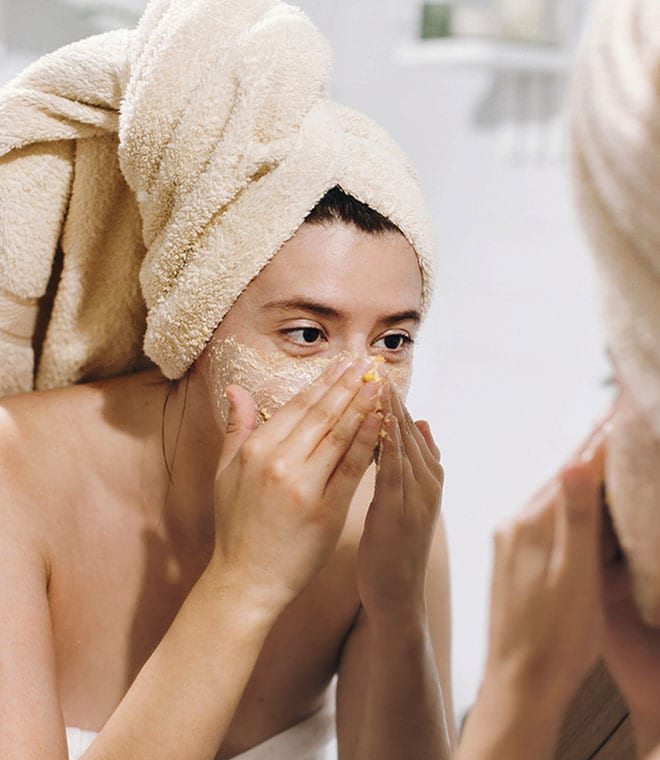Beauty
Laser treatment for acne scars
By Anna H. Chacon, MD, Fellow of the American Academy of Dermatology Jul 10, 2024 • 8 min
Acne is a very common skin condition that affects people of all ages and skin types. But the lesions it causes can be a source of anxiety and embarrassment, and the scars left behind after healing can be just as devastating. The good news is that there are effective treatments that can reduce the appearance of acne scars and help them to fade faster. Laser treatment is one such treatment. Before considering laser treatment, it's important to understand how it works and how it can help improve the appearance of acne scars.
What is laser treatment?
Laser treatment, also known as laser therapy or laser resurfacing, is a procedure that uses a laser to send out short pulses of high-energy light that gets absorbed by the skin. With some laser treatments, the heat from the laser removes the outer layer of skin so that new skin grows back. Other laser treatments focus on stimulating deeper layers of the skin to produce collagen, a protein that promotes the healing and health of the skin.
Can you get rid of acne scars?
Acne scars are typically permanent, although they usually fade over time. However, it can take a year or longer to see marked improvement. A number of topical scar treatments can help reduce the appearance of small or shallow scars more quickly, and they may help even out skin tone. But deep scars from acne, including skin craters and acne scar pits, may require more aggressive treatment, including laser resurfacing, before you see much improvement.
It's important to understand that not even laser treatment can completely get rid of a scar, but it can make scars less noticeable.
What happens during laser treatment for acne scars?
Laser treatment takes place in your dermatologist's office. First, your provider will clean the area to be treated and mark the targeted scars with a pen. In some cases, a topical anesthesia may be applied to numb the area. If the laser treatment will target acne scars on the face, you may need to wear goggles to protect your eyes from the laser.
Your treatment provider will pass the laser over the targeted skin several times. After each pass, they'll wipe the scar with saline solution or water to cool the skin in preparation for the next pass.
During laser treatment, you may experience a slight stinging, snapping or burning sensation on your skin. Laser resurfacing doesn't usually cause bleeding unless the skin is severely damaged. After the treatment is finished, your dermatologist will cover the area with a bandage or apply ointment.
How soon do results appear after laser resurfacing?
Once the procedure is finished, you'll likely experience swelling for a couple of days, and you may experience itching or stinging for several days as well. Around five to seven days after treatment, your skin will begin to peel off. Depending on the size and location of the treated area, you can expect it to heal in about 10 to 21 days. However, you may not notice much improvement at first. The full results of laser treatment may not appear for several months after the procedure.
The results you see once your skin fully heals depends on a number of factors, including your skin type, the skill of the person performing the treatment, and how carefully you followed the after-procedure instructions. People who undergo multiple laser resurfacing treatments generally see significantly better results than those who are treated only once. Although the improvements seen with laser therapy are typically long-lasting, you may need follow-up treatments once or twice a year to maintain results.
What are the risks of laser scar removal?
Laser treatment for acne scars is typically safe and effective, but potential side effects may include:
- Pain
- Swelling
- Bleeding
- Crusting
- Scarring
- Discoloration (hyperpigmentation or hypopigmentation)
- Infection
- Acne
However, there are some things you can do to minimize these risks, including:
- Choose a licensed dermatologist with laser resurfacing experience
- Follow your doctor's after-care instructions carefully, including cleaning, changing the dressing and applying topical ointments as directed
- Don't scratch or pick at your skin
- Avoid exposure to the sun, which can cause discoloration, and wear sunscreen with an SPF (sun protection factor) of at least 30
- Use only oil-free makeup for three months after the procedure
- Keep your skin hydrated after it heals with a quality, noncomedogenic moisturizer
What's the best type of laser treatment for acne scars?
Two main types of laser treatment are used for acne scar reduction.
Ablative lasers: These lasers, also known as carbon dioxide or CO2 lasers, direct an intense wavelength of light onto the skin, which completely removes the outer layers so that new skin can grow in its place. Ablative laser treatment involves a significant healing period and higher risk of side effects than nonablative laser treatment.
Nonablative lasers: These lasers keep the outer layer of skin intact but penetrate deep into the dermis, or the lower layer of the skin, to stimulate the production of collagen and improve the appearance of scars. Nonablative laser treatment offers a shorter healing time and tends to have fewer side effects than ablative resurfacing. However, multiple treatment sessions are often needed.
The type of laser your dermatologist uses will depend on your unique skin type, the type and severity of scarring, your skin color, your skin's sensitivity and your risk factors.
Although laser treatment isn't meant for complete acne scar removal, it is effective at reducing the appearance of acne scarring. Results may take some time to appear, and you may need to undergo more than one laser treatment for the best results, especially if you have severe acne scars. Laser resurfacing may be used in tandem with other scar reduction treatments, such as dermal filling to fill in deeper scars. For more information about laser treatment for acne scars, talk to your dermatologist.
Clinically reviewed and updated by Julie McDaniel, MSN, RN, CRNI, July 2024.
- https://www.asds.net/skin-experts/skin-treatments/laser-resurfacing/laser-resurfacing-for-scars
- https://www.aad.org/public/cosmetic/scars-stretch-marks/laser-treatment-scar
- https://www.aad.org/public/diseases/acne/derm-treat/lasers-lights
- https://www.ncbi.nlm.nih.gov/pmc/articles/PMC5749614/
- https://www.mayoclinic.org/tests-procedures/laser-resurfacing/about/pac-20385114
- https://www.cosmeticsurgery.org/page/LaserSkinResurfacing
- https://www.plasticsurgery.org/cosmetic-procedures/laser-skin-resurfacing
